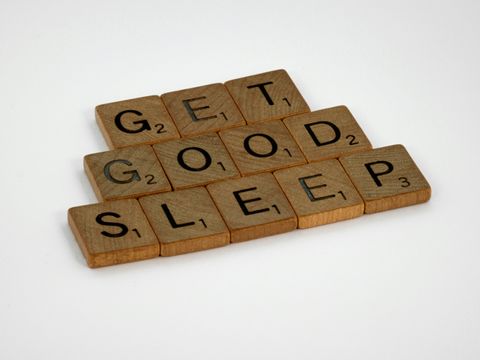Blog
Keep up to date with our news, tips & tools, and latest information!
How to Stop Taking Things So Personally
Dr Corinne Scholtz, LMFT
Taking things personally is one of the most common emotional patterns humans experience especially during the holidays, when expectations, old stories, and family dynamics can feel louder than usual.
If you’ve ever found yourself feeling hurt, rejected, or criticized by something small, you’re not “too much.” You’re not dramatic. You’re not failing.
You’re human.
And your body is doing its best to make sense of what’s happening.
Let’s break it down gently.
1. Taking Things Personally Is a Nervous System Response, Not a Character Flaw
When a comment, look, or tone hits a tender place, your nervous system often responds before your mind does.
This might look like:
-
a tight chest
-
tension in your stomach
-
a sudden drop in mood
-
the urge to defend yourself
-
replaying the moment in your head
-
withdrawing, shutting down, or getting quiet
In individual therapy, I often remind clients:
“Your body remembered something before your mind did.”
This reaction is usually tied to older experiences - times when criticism felt unsafe, connection was fragile, or you learned to monitor someone else’s mood to stay secure.
moreThe Relationship Reset Ritual
Dr Corinne Scholtz, LMFT
The end of the year carries its own energy with a mix of nostalgia, hope, pressure, tenderness, and sometimes stress. It’s a season when many people notice familiar patterns in relationships resurfacing, old dynamics showing up around family, or a desire to start fresh.
This is why December is the perfect time for a Relationship Reset Ritual.
This isn’t about fixing everything or diving into heavy emotional work. Instead, it’s a grounding practice that helps you reconnect with yourself or someone you love with warmth, intention, and ease.
Whether you're navigating changes in your partnership, deepening your own growth through individual counseling, or integrating insights from ketamine-assisted therapy, this ritual can help you enter the new year with clarity and a steadier heart.
💛 Step 1: Create a Soft Landing
Start by setting aside a small moment that feels calm:
-
Light a candle
-
Sit with a warm mug
-
Step outside for a breath of fresh air
-
Put on a calming song
This tiny pause tells your nervous system, We’re safe enough to check in.
moreWhen Someone Pushes Your Buttons
Dr. Corinne Scholtz, LMFT
When Someone Pushes Your Buttons: How to Stay Connected to Yourself During Emotional Triggers
The holidays bring a mixture of joy, connection, nostalgia and let’s be honest - emotional complexity. Thanksgiving week especially has a way of placing us in situations where old histories, unresolved tensions, and familiar family dynamics rise to the surface.
Even with the best intentions, someone can say or do something that presses that button, and instantly your whole body reacts. Your chest tightens. Your mind races. Your stomach drops. You feel younger, smaller, or suddenly on the defensive.
As a Fort Lauderdale therapist who supports clients in relationship counseling, individual therapy, individual counseling, and ketamine-assisted therapy, I see this pattern unfold over and over:
We blame the button-pusher, when the deeper work is in healing the button.
This blog explores how to stay connected to your inner calm, take responsibility for your emotional reactions, and build the daily practices that help you stay grounded even when someone triggers you.
Why “Buttons” Feel So Intense
A button is not just a sensitive topic.
moreFinding Gratitude and Joy
Dr. Corinne Scholtz, LMFT
Why mixed emotions are normal and how to make space for what matters most
The holiday season has a way of stirring things up inside us.
For some, this time of year feels cozy and connective. For others, it brings stress, pressure, grief, or complicated family dynamics. And for many people, it’s all of the above, a full spectrum of emotions happening at the same time.
If you’re someone who feels both grateful and overwhelmed… joyful and irritated… hopeful and anxious, you’re not doing the holidays wrong. You’re having a very human experience.
As a individual and relationship therapist who works closely with people navigating stress, anxiety, relationship challenges, and the emotional aftermath of difficult years, I want you to hear this clearly:
Mixed feelings during the holidays are normal. And they deserve compassion, not criticism.
In this post, we’ll explore how to soften into the present moment, how to hold both gratitude and stress at once, and how to create space for small moments of joy without ignoring or suppressing what’s hard.
Why the Holidays Can Feel So Emotionally Heavy
moreThe Soul of Relationships
Dr Corinne Scholtz, LMFT
The Soul Between You
Every relationship has a pulse - a rhythm, a heartbeat, a living energy that exists between two people.
It’s more than shared routines or conversations. It’s the quiet space where your connection lives - the soul of your relationship.
When we pause long enough to notice that space, we can begin to sense its tone: Is it calm or tense? Open or guarded? Playful or heavy?
This awareness helps us tend not only to our individual needs but to the relationship itself - the “we” that holds both people’s hearts.
Why the Space Between Matters
In relationship therapy and couples counseling, I often invite partners to view the relationship as its own living system.
When something feels off, instead of asking, “What’s wrong with me?” or “What’s wrong with them?”, we ask:
“What’s happening in the space between us?”
This small shift changes everything.
It moves us away from blame and toward curiosity. It helps each partner listen for what the relationship is asking for - safety, play, honesty, or rest.
moreLoneliness & Connection
Dr. Corinne Scholtz, LMFT
Loneliness is one of those quiet experiences that doesn’t always make sense from the outside.
You can be in a relationship, surrounded by people who love you, and still feel like no one really sees you.
It’s not the same as being alone.
Loneliness is the feeling of being disconnected - from others, yes, but also from yourself.
When You Feel Lonely
For many people I see in therapy, loneliness shows up in subtle ways:
-
A sense that conversations stay surface-level.
-
Feeling emotionally distant from your partner.
-
Keeping busy so you don’t have to notice the emptiness underneath.
-
Wondering why you feel “off” when life looks full.
It’s the ache of not being met - not because others don’t care, but because somewhere along the way, you stopped showing your full self.
How We Lose Touch With Ourselves
In couples counseling and marriage therapy, this often becomes clear: we disconnect from each other when we’ve already disconnected from ourselves.
When you’ve spent years being the caretaker, the peacemaker, or the strong one - it can feel foreign to slow down and ask,
moreWhen Couples Stop Sleeping Together
Dr. Corinne Scholtz, LMFT
I see it all the time in couples counseling - partners who love each other but are quietly struggling at night.
One person can’t fall asleep because the other snores.
Someone’s anxious, restless, or stuck in a cycle of sleepless nights.
Different bedtimes, tossing, turning - and before long, the bedroom starts to feel like another battleground.
Eventually, someone suggests sleeping apart.
And that’s when the fear sets in:
“Does this mean something’s wrong with us?”
“If we don’t share a bed, are we losing intimacy?”
Let’s unpack what’s really happening.
What Is a “Sleep Divorce”?
Despite the dramatic name, a sleep divorce isn’t the end of closeness - it’s often an act of care.
It simply means choosing to sleep separately, either temporarily or long-term, so both partners can get the rest they need.
For many couples, it’s the key to more patience, affection, and emotional stability during the day.
Why Sleep Affects Relationship Health
The version of us that shows up when we’re rested versus when we’re depleted are two completely different people.
moreHow Couples Can Build Emotional Safety
Dr. Corinne Scholtz, LMFT
When things get tense in a relationship, it’s easy to slip into familiar patterns.
One partner might withdraw to calm down, while the other reaches out, hoping to talk or find reassurance.
Over time, these roles can become painful. The one who pulls away may feel misunderstood or overwhelmed. The one who reaches out may feel rejected or alone.
The truth is - both partners are trying to feel safe.
But safety can look very different for each person.
🌿 Introducing Capacity
In therapy, I often use the word capacity to describe how much emotional stress we can handle while still staying open and connected - to ourselves and to each other.
You can think of it like an emotional “window.”
When stress, conflict, or hurt push us outside that window, our system does what it knows: it either shuts down or gets reactive.
Building capacity means slowly expanding that window - so you can stay grounded and connected, even when emotions run high.
It’s not about perfection. It’s about building resilience and safety, one moment at a time.
💛 How Couples Build Capacity Together
moreUnderstanding The Inner World of Withdrawal
Dr. Corinne Scholtz, LMFT
Last week, we looked at what happens for the partner who feels blamed and pushed away when emotional shutdown takes over. If you missed it, you can read it here. This week, we’re shifting perspective to the partner who withdraws.
If you’ve ever found yourself going quiet, shutting down, or emotionally retreating when conflict arises, you’re not alone. This response is often misunderstood by partners as rejection, punishment, or indifference. But in reality, shutdown is usually a protective strategy - a way of saying: “I’m overwhelmed and don’t know how to stay safe or connected right now.”
Why Shutdown Happens
From an attachment theory perspective, emotional withdrawal often develops as a survival strategy when vulnerability didn’t feel safe in earlier life. If reaching out with needs was met with criticism, neglect, or volatility, it may feel easier to go inward and hide pain.
From a trauma lens, the nervous system sometimes shifts into “freeze” or “collapse” mode when it perceives danger. Even if the current moment isn’t dangerous, your body remembers and reacts as though it is.
moreEmotional Shutdown
Dr. Corinne Scholtz, LMFT
What to Do When Your Partner Emotionally Shuts Down
In relationships, few moments feel as painful as when your partner emotionally shuts down and pushes you away. You may hear words like “You hurt me” or “I can’t talk to you right now” - and suddenly, you’re left holding both the blame and the ache of disconnection.
This moment can stir panic, guilt, defensiveness, or even a desperate urge to “fix it.” But couples counseling, attachment research, and trauma work all tell us the same thing: repair doesn’t come from rushing in. It begins with grounding yourself so that the relationship has space to heal.
Why Emotional Shutdown Happens
Emotional withdrawal is often a protective response. When someone feels hurt or unsafe, shutting down can be a way of saying: “I can’t handle more right now.” This doesn’t mean they don’t care - it often means they’re overwhelmed by their own pain.
From an attachment theory perspective, shutdown may come from earlier experiences where vulnerability wasn’t safe. From a trauma lens, the nervous system sometimes moves into “freeze” or “shut down” as a survival strategy. In couples therapy, we often see this dynamic play out as one partner withdrawing while the other becomes more anxious or pursuing.
more








